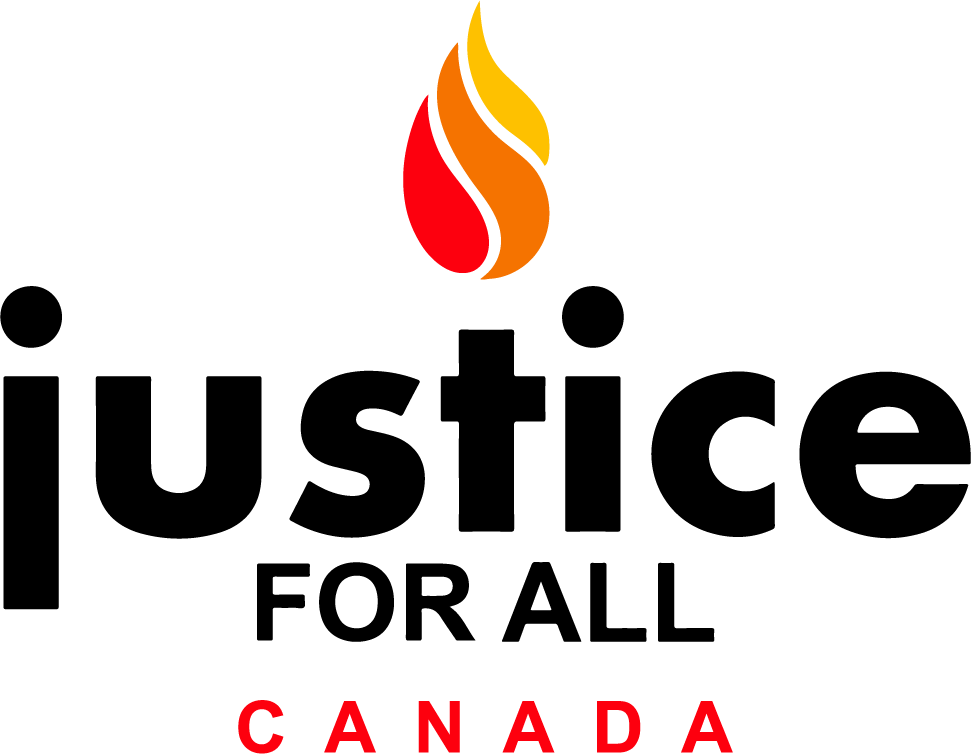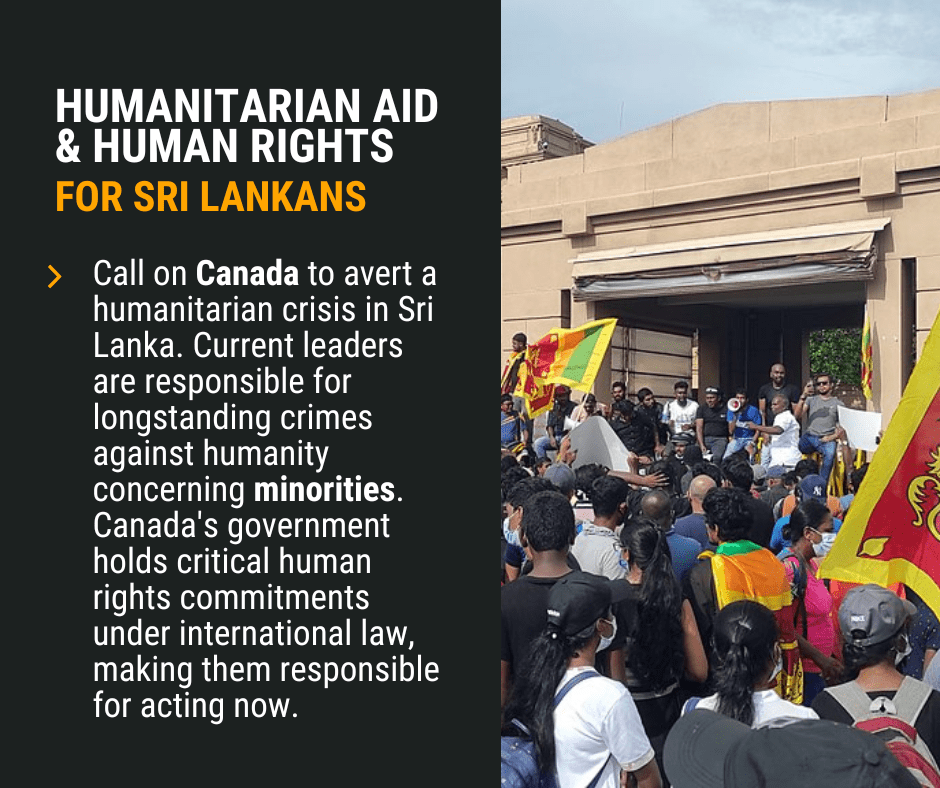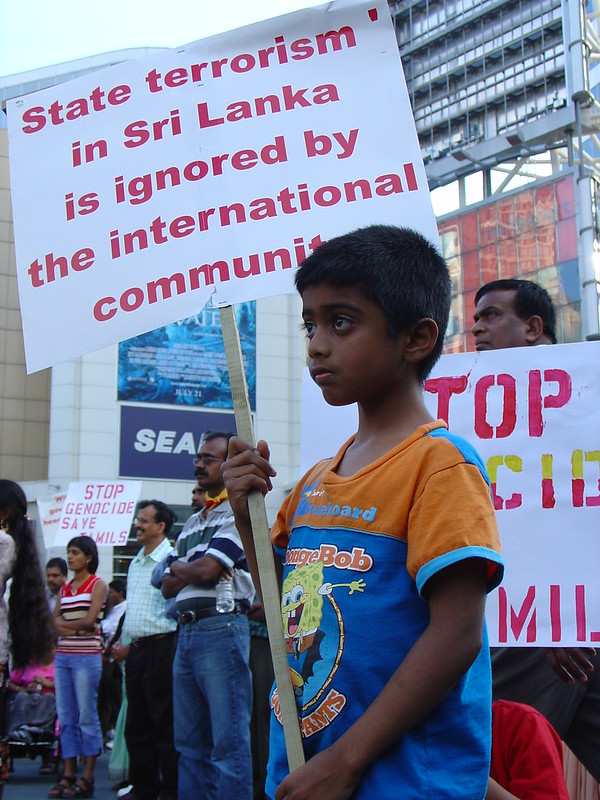Sri Lankans are facing an economic crisis and renewed corrupt leadership.
|
Marginalization and discrimination suffered by Muslims in Sri Lanka
|
Renewed anti-Muslim sentiments and Discrimination
Obstruction of accountability for violations and crimes
Arbitrary arrest , discriminatory treatment under the draconian Prevention of Terrorism Act (PTA) without the due process of the law.
Exclusion and marginalization
Sri Lanka’s government use excessive majoritarian language which define policies and do not consider the rights or interests of minorities. Muslims are excluded and falsely perceived as a “threat”. Constant threat on freedom of religion by a group of Buddhist monks and the high ranking government officials deterring the Muslims from their right to practice the religion.
Surveillance, intimidation of civil society
Intense surveillance and harassment of victims, human rights defenders and civil society organizations by Sri Lanka’s security.
Decline of democracy
In October 2020, Sri Lanka’s Parliament amended changes to the balance of power in government, expanding the powers of the president and executive (The 20th Amendment to the Constitution). This power imbalance challenges the progress of human rights and reconciliation.
Arbitrary arrest , discriminatory treatment under the draconian Prevention of Terrorism Act (PTA) without the due process of the law.
Exclusion and marginalization
Sri Lanka’s government use excessive majoritarian language which define policies and do not consider the rights or interests of minorities. Muslims are excluded and falsely perceived as a “threat”. Constant threat on freedom of religion by a group of Buddhist monks and the high ranking government officials deterring the Muslims from their right to practice the religion.
Surveillance, intimidation of civil society
Intense surveillance and harassment of victims, human rights defenders and civil society organizations by Sri Lanka’s security.
Decline of democracy
In October 2020, Sri Lanka’s Parliament amended changes to the balance of power in government, expanding the powers of the president and executive (The 20th Amendment to the Constitution). This power imbalance challenges the progress of human rights and reconciliation.
Bigotry, attacks, violence against Sri Lankan Muslims
Institutionalized Discrimination
|
Violence & Bigotry
|
Widespread Impunity
|
Censorship
|
Disregard for International Law
|
Regional Disparities
|
Our Goal
Halting human rights and religious freedom violations against Sri Lankan religious and ethnic minorities.
Objectives
- Promote policies that protect religious freedom for minorities in Sri Lanka
- Increase awareness about the injustices faced by minority communities in Sri Lanka
- Inspire action among Canadian political leaders in Canadian Federal Government
- Inform Canada’s Parliamentary human rights committees of crimes against humanity
- Advocate with the UN, OIC, and other international bodies to prevent human rights and religious freedom violations in Sri Lanka
Background: Crimes Against Humanity
At the start of the coronavirus pandemic, Sri Lanka was the only country in the world that enforced mandatory cremation of COVID-19 victims, in contradiction to World Health Organization (WHO) guidelines. WHO guidelines have been adhered to by 185 countries in the international community. The Sri Lankan government’s mandatory cremation policy repressed and violated the religious burial rights of minority Christians and Muslims.
The ostracization and discriminatory treatment of minority communities are not new to Sri Lanka.
After the 30-year-old civil war with the LTTE ended in 2009, ethnic and religious minorities, specifically Muslims and Christians, have become a consistent target of Sinhala-Buddhist extremists. Attacks on Sri Lankan Muslims and Christian minorities continue with impunity. This has led to a systematic build-up of anti-Muslim hysteria with several flashpoints over the last decade
These incidents have been documented in the Mission to Sri Lanka report by Ahmed Shaheed, Special Rapporteur on Freedom of Religious Belief, and presented to the Human Rights Council’s Forty-Third session.
Hatemongering and unverified against Muslims were not just spread by extreme Buddhist organizations like Bodu Bala Sena, but also through social media and public campaigns. This barrage of hostile propaganda has created fear, anger, and mistrust among the Sinhala population.
For the first time in Sri Lanka’s history with the UN Human Rights Council and the Office of the High Commissioner for Human Rights, High Commissioner Michelle Blanchet has recommended Sri Lanka’s referral to the International Criminal Court, the permanent tribunal tasked with dealing with grave international crimes such as war crimes and crimes against humanity.
The ostracization and discriminatory treatment of minority communities are not new to Sri Lanka.
After the 30-year-old civil war with the LTTE ended in 2009, ethnic and religious minorities, specifically Muslims and Christians, have become a consistent target of Sinhala-Buddhist extremists. Attacks on Sri Lankan Muslims and Christian minorities continue with impunity. This has led to a systematic build-up of anti-Muslim hysteria with several flashpoints over the last decade
These incidents have been documented in the Mission to Sri Lanka report by Ahmed Shaheed, Special Rapporteur on Freedom of Religious Belief, and presented to the Human Rights Council’s Forty-Third session.
Hatemongering and unverified against Muslims were not just spread by extreme Buddhist organizations like Bodu Bala Sena, but also through social media and public campaigns. This barrage of hostile propaganda has created fear, anger, and mistrust among the Sinhala population.
For the first time in Sri Lanka’s history with the UN Human Rights Council and the Office of the High Commissioner for Human Rights, High Commissioner Michelle Blanchet has recommended Sri Lanka’s referral to the International Criminal Court, the permanent tribunal tasked with dealing with grave international crimes such as war crimes and crimes against humanity.


